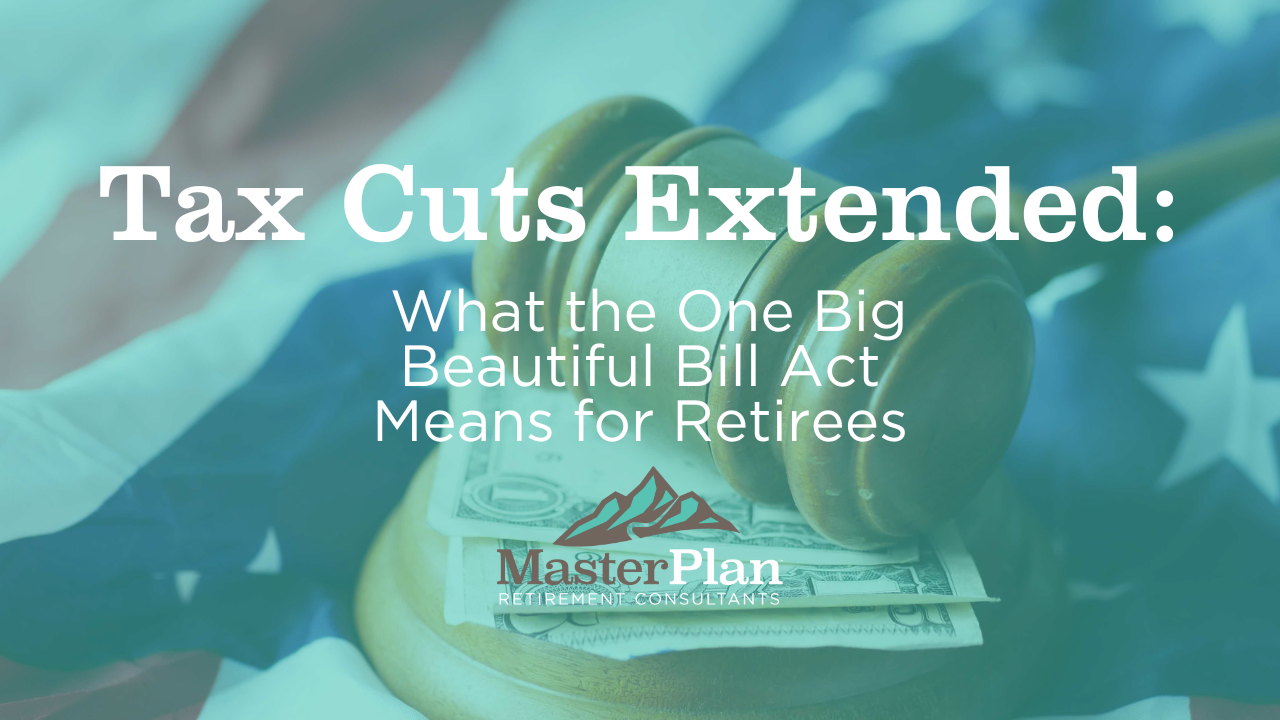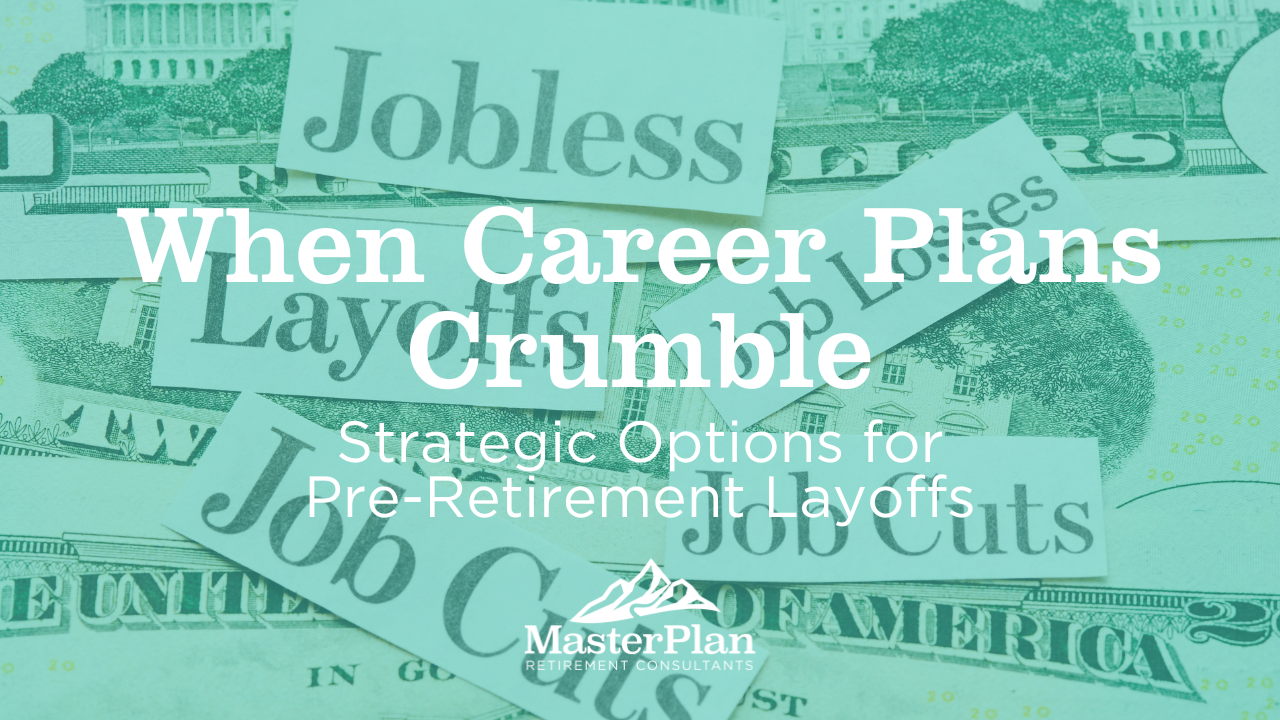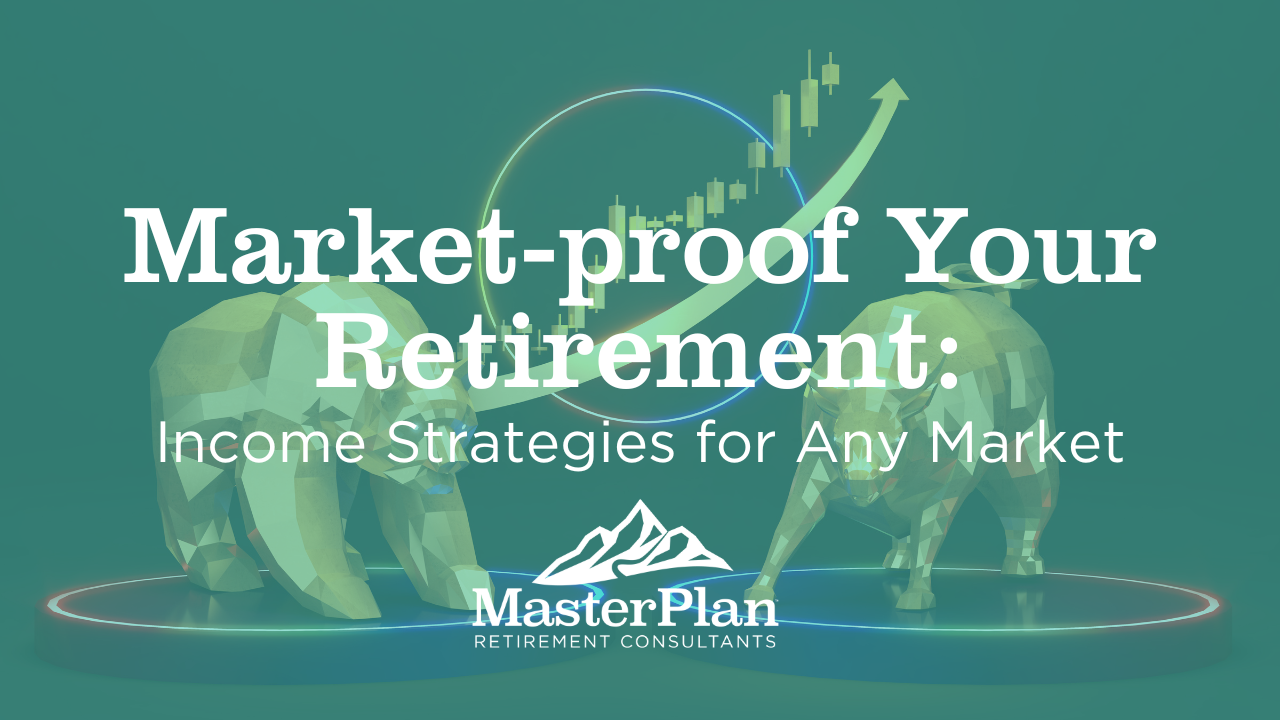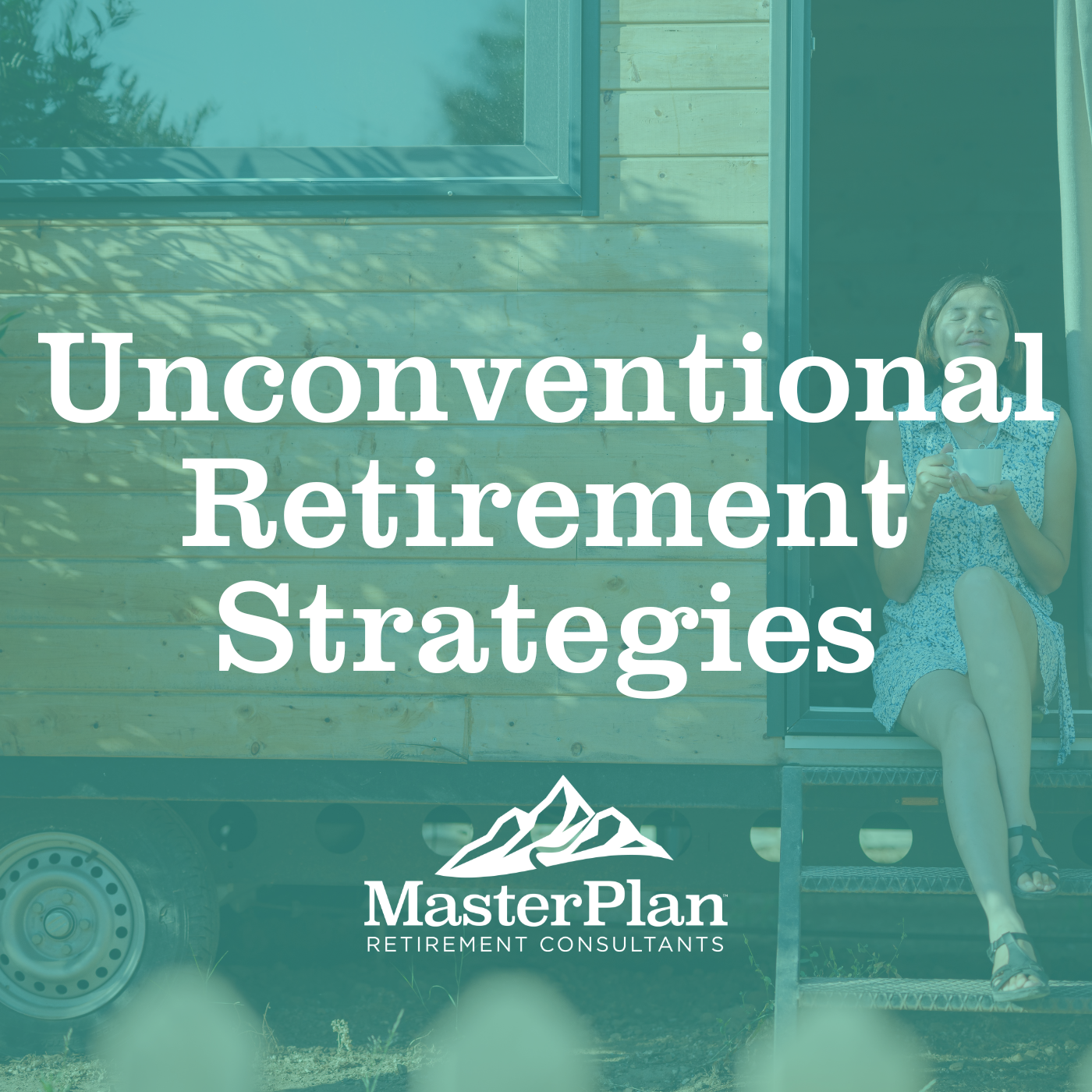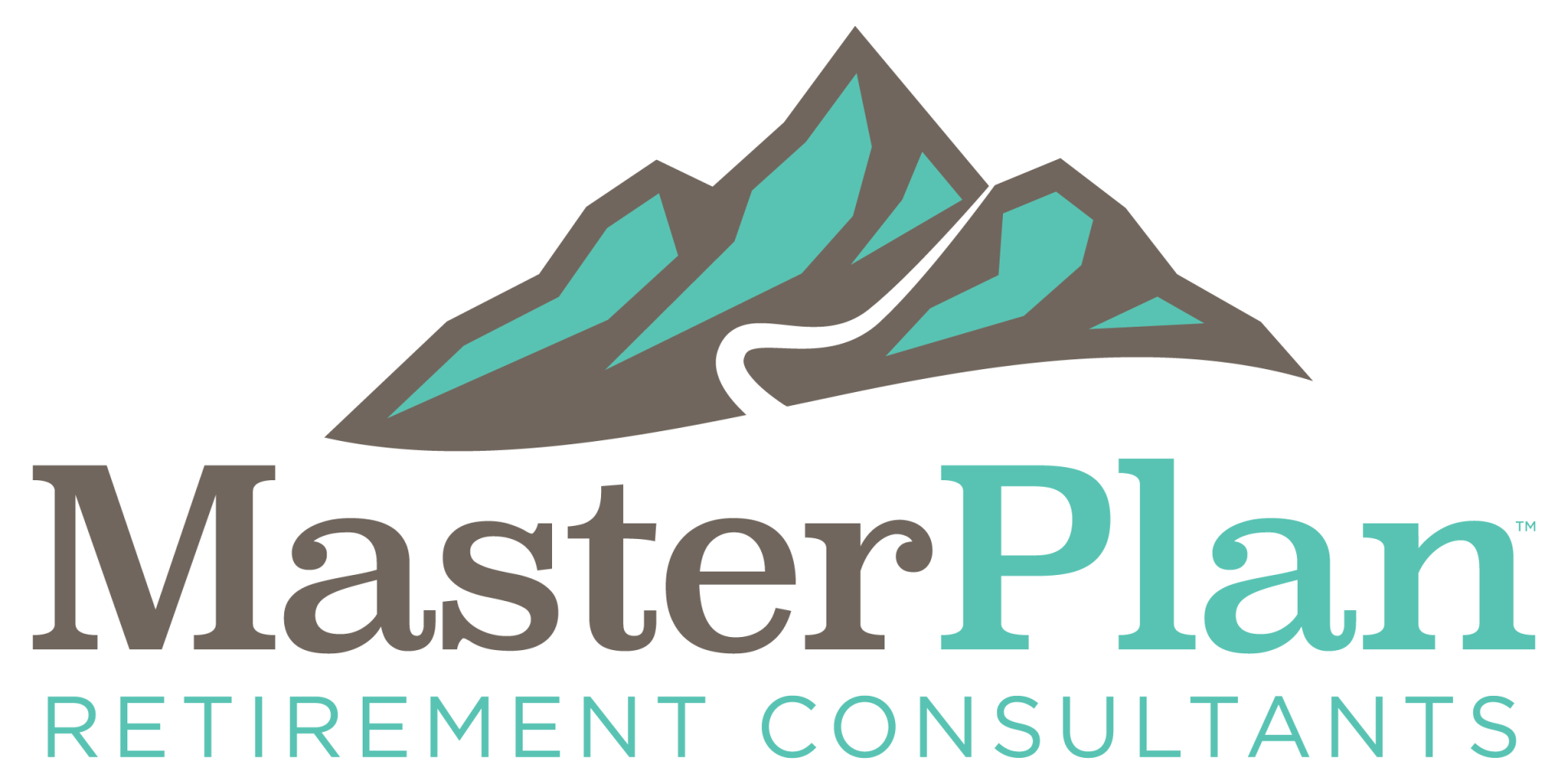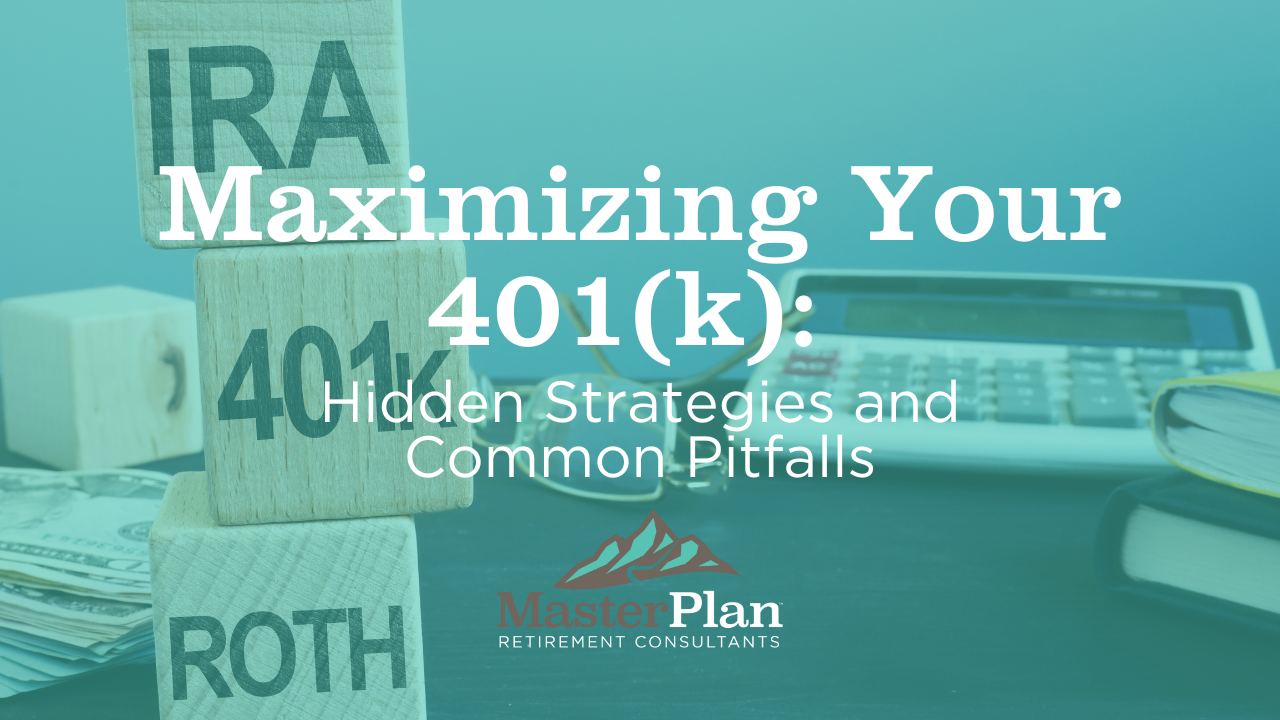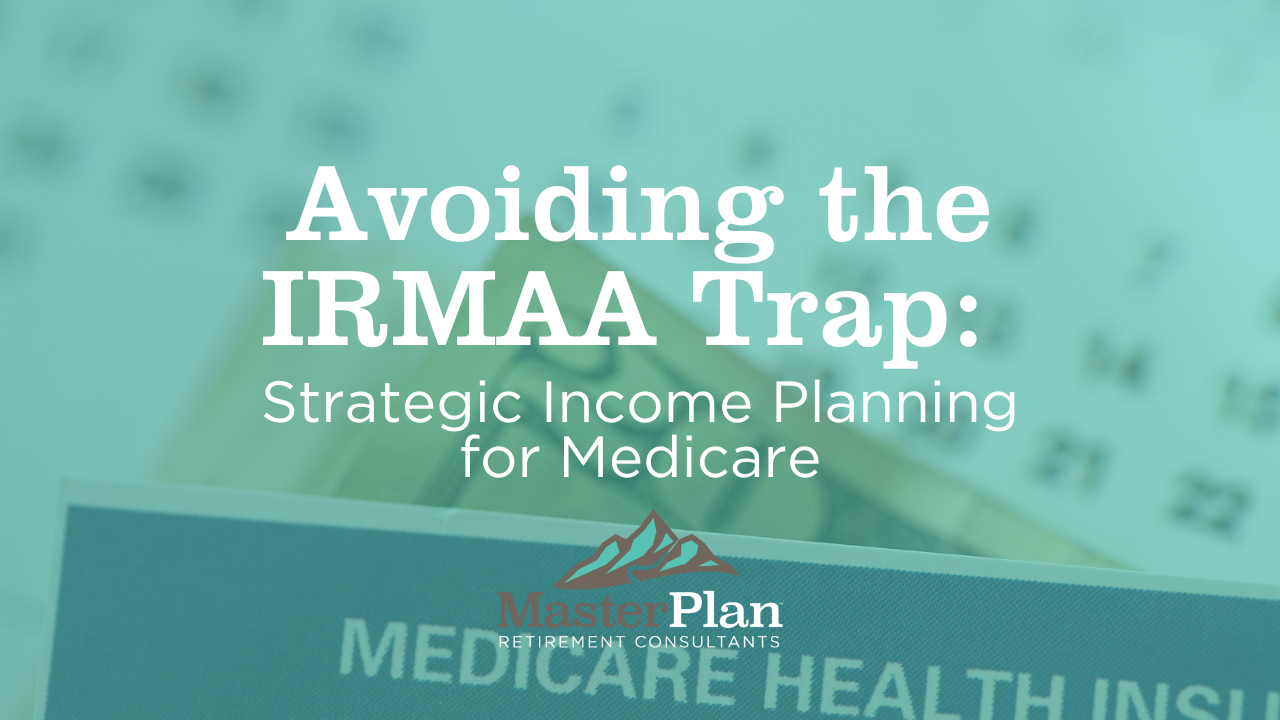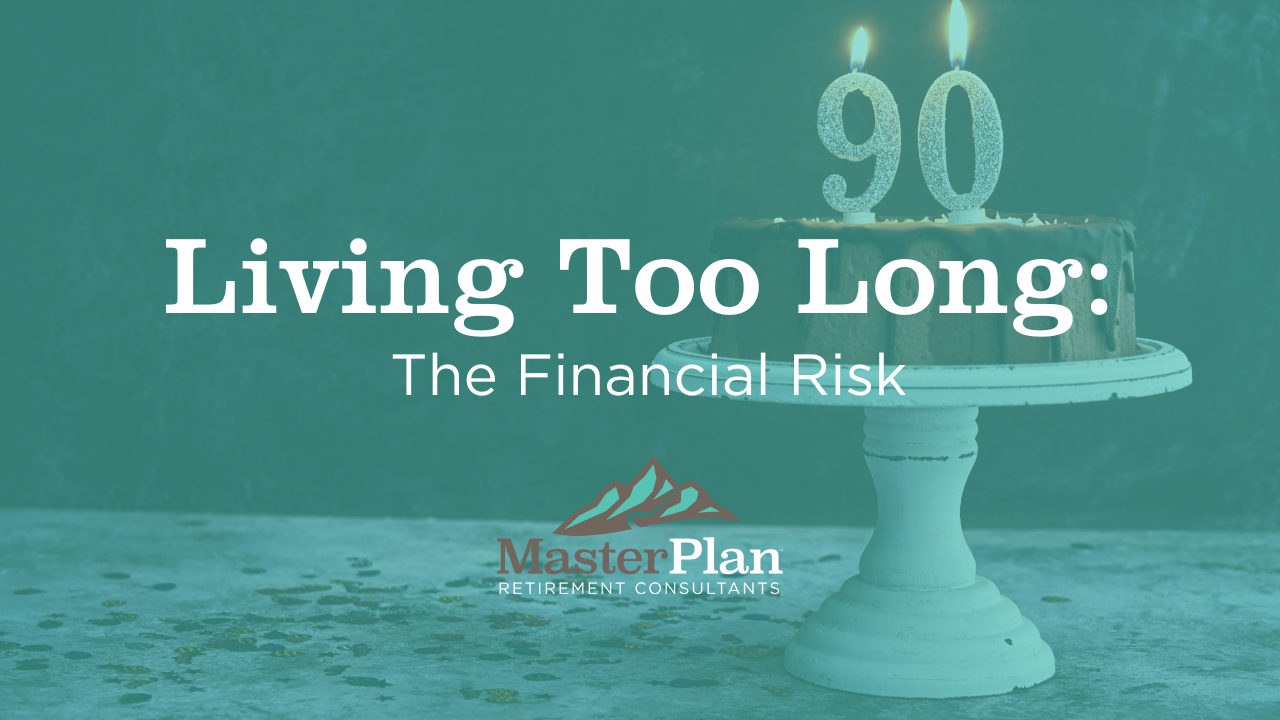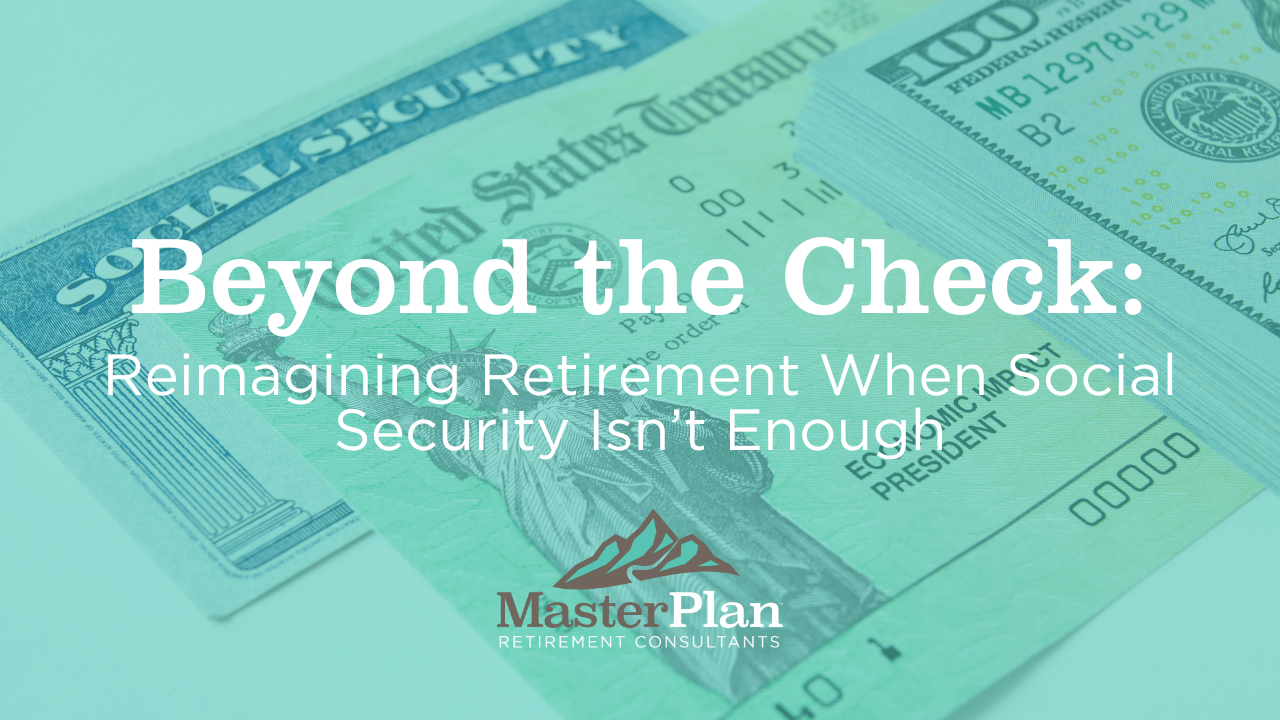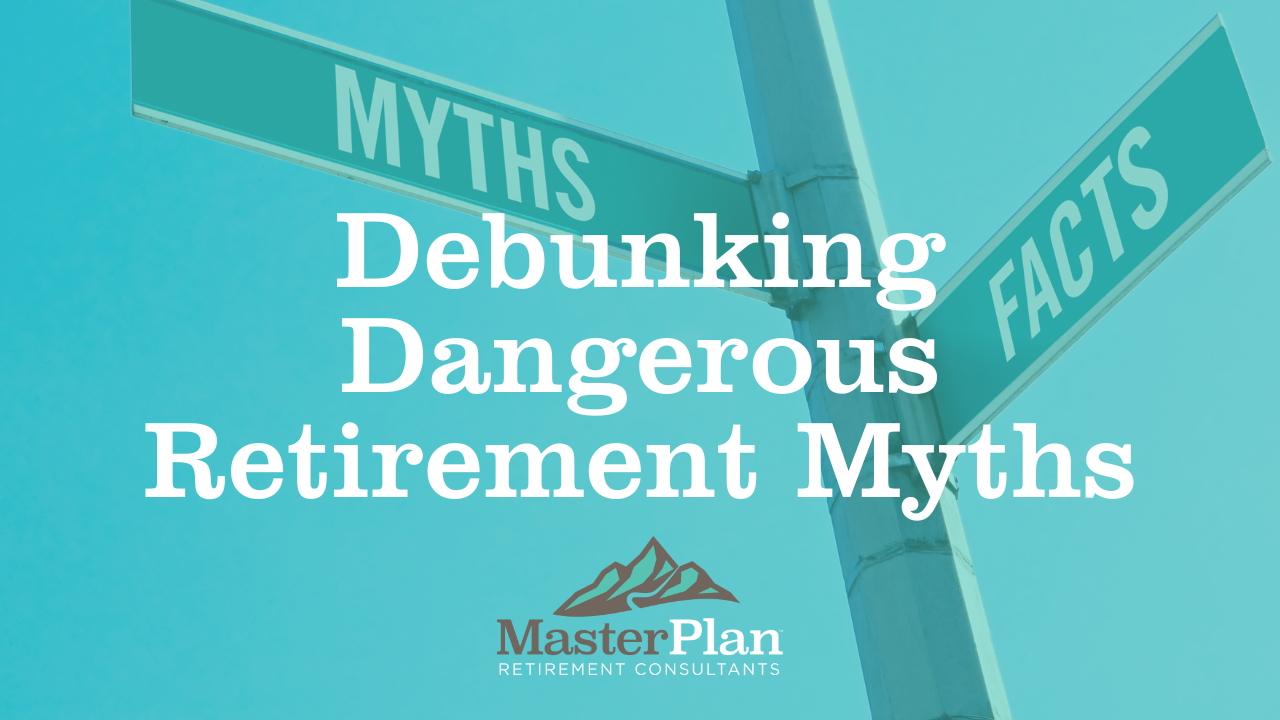Shockproofing Your Retirement: Essential Safeguards
On this episode of Retirement Roadmap, Evan and Mark explore the unexpected financial shocks that can derail even the most carefully constructed retirement plans and discuss strategies to help prepare for these challenges.
Evan Fricks:
Is your retirement plan shockproof? Hey folks, thanks for joining us. Welcome back to Retirement Roadmap with Master Plan Retirement Consultants. My name is Evan. With me, as always, retirement planner Mark Fricks. Transitioning to retirement is an adjustment both financially and emotionally. With big changes already happening, there can also be unexpected shocks to your retirement plan, Mark. We know that once we've got a plan in place at some point, inevitably there's going to be some adjustments that have to be made. Where we get into trouble is when we don't consider some very big parts of the plan that need to be taken care of ahead of time.
Mark Fricks:
Well, you know people that come to us. Typically, unless it's children of clients or typically 50 and older, they've lived enough life to know things change, you're right, and just as much as during life, they change probably even more in retirement. You're talking about 20, 25, 30 years of life, and then you throw in things that may not happen as much during your earlier years, like health issues and things like that. So, yeah, absolutely, we have to plan for that, or it's got to be flexible. Right, we got to be able to shift gears. Maybe it's a slight detour, maybe it's a total 180, whatever it may be, but you got to be prepared and we go ahead and look at that as we're talking to talk about today, ahead of time, so that we're not necessarily surprised. I'm not saying it's a great thing to have to do, but we do need to be able to maneuver that and change that a little bit, because there's definitely some areas we're going to talk about today.
Evan Fricks:
Some of these will be shocking and maybe not have been considered before by our listeners.
Some of them, "oh yeah, of course that's part of a retirement plan, but maybe we don't realize how devastating it can be to a retirement plan. So the first one we all know health care costs are going up, so that's our first financial shock. However, lately I'm noticing one of the more common reasons clients are delaying their retirement is because of health care.
Mark Fricks:
Well, you know, Medicare doesn't kick in until 65. And first of all, that's getting more expensive, right, Medicare, Part B and Part D and all that is getting more expensive. Government's kind of talking about do we want to cut some benefits or whatever, but until 65, that's a big consideration. A lot of our clients are retiring before 65. And so, whether it be one part of a couple or both the couple or whatever it may be, you've got that situation of, and we just had this discussion with a client yesterday. You know their big concern was you know, if I could retire now I think he's 57, 56, something like that what am I going to do about health insurance? And so we explored some options. There are options available If somebody were to get laid off, there's a possibility of maybe some benefits coming from the company if they have seniority.
But that's not going to last probably very long. 18 to 36 months might be the max. So there are some other things we look at. We have some other ideas that we look at, but that is a major consideration and when you consider that healthcare inflation is more like six to six and a half percent, it's not going to get any better. I don't know where this is headed. I know just as a company. Our group health has more than doubled over the last 18 months. It's been wild. Yeah, it's just crazy. And so in retirement, when you're maybe on a more fixed income, it's even more critical.
Evan Fricks:
Right.
And we have that discussion as well. You know there are a lot of other resources to go to. The marketplace is a place, is something to consider. However, that is income-based and if you have a lower income for a while in this transition period, then that might be worth it. But if you're also using this period, maybe you're 60, somewhere around there using this period to prepare for retirement, with things like Roth conversions or things that are going to impact your income for that year, then that might not turn out to be such a good place to go.
Mark Fricks:
It's got to be closely watched and you want to make it part of that retirement budget. So that's something we examine when we're creating that income plan. Again, we've had several people come to us whether it be federal government workers or whether it be just anybody in the open public sector that have suddenly found out that, hey, they're paring down the economy right now is a little weird, a little sideways. And so there are companies either not hiring or they're cutting back, and many times it's that middle to upper middle management that gets cut. And so these are a lot of the folks we talk to age 50 to 60. And all of a sudden they're like do I retire? I'm this age, what about health insurance? What about income? Have I got enough saved? All of these questions come into being, but healthcare is certainly probably one of the bigger ones.
Evan Fricks:
And if industry-wide those positions are being cut, it's hard to find a position that pays the same amount and reenter the workforce. Let me give you some tangible numbers here. So Fidelity says that the average 65-year-old in 2024 will spend $165,000 on health care throughout retirement, so that's over the course of 20 plus years. However, fidelity also found that Americans estimate their retirement health care costs at $75,000. So that's less than half of the reality, and a couple's average cost in retirement is $315,000.
Mark Fricks:
Yeah, let's talk about where that comes from. A lot of people are like, well, I'll be on Medicare. Well, so Medicare Part A is hospital. We've had Medicare shows before but, briefly, it's paid for over the course of your lifetime when you pay into FICA. But Part B is paid for in retirement and right now it's around $185 per person. So if you're a married couple that's $370. And that goes up almost every year a percentage, and so just do that math every month for 25 years. You can see what that would cost. Well, we still got Part D coming in, which is the drug coverage. That typically is not cheap.
Many people want the vision and the dental. You know a lot of things and even hearing, and you start looking at the cost of hearing aids and you know a crown replacement. All of this. You kind of want the insurance for that and I felt like I'm missing something. You know, oh, the supplement you know a part, you know G or whatever it might be is an additional cost. Now some people go to the Medicare Advantage it is cheaper but it's changing as well and then deductibles, things of that nature. So that's a real number $365,000. Is that what you said? Give or take?
Evan Fricks:
$315,000 for a couple
Mark Fricks:
$315,000. Yeah, that's real money, and so that's something, we've got to plan for it. We got to make sure we have the income coming in to cover the unexpected, which is why I love overages in our income plans when we have more coming in than we need. That's a beautiful scenario.
Evan Fricks:
Well, and maybe you know, if you look okay, retirement could be 20, 25, maybe even 30 years, so 315,000 spread over that many years. Okay, maybe I can break that down and look at it, but then you're considering that's one element of retirement.
Mark Fricks:
Right, one element and then we're going to go over some more, I'm sure. But yeah, that's just one piece of the puzzle that comes into play. And again we've got some clients that all of a sudden they've got three or four health issues in a row and it stacks up over a course of, you know, it typically happens in a year or two. Then they're kind of good for a few years. All of a sudden barrage hits again, and if it's both of them, that's even more. You know more of a problem.
So if you're not planning for health care costs, you're not planning.
Evan Fricks:
Number two along a similar avenue as health care costs, and that would be long-term care. An estimated 70% of US adults who survive to age 65 will end up needing some amount of long-term care insurance.
Mark Fricks:
What percentage was that?
Evan Fricks:
70% of US adults who survive to 65, they'll end up needing some amount of long-term care in their lifetime, but the cost involved could be catastrophic. So long-term care costs vary significantly, with average annual costs ranging from $47,000 to $131,000 or more, depending on the type of care and location. So Genworth's most recent cost of care survey puts the average annual cost of home health aid at $77,792. For the assisted living community, a little bit lower, the annual price tag is $70,800. But then there's nursing home care, with an average price tag of $111,325 for a shared room and $127,750 for a private room. Even a brief nursing home stay could empty a moderate income retiree's bank account.
Mark Fricks:
Let's not be fooled, Medicare does not cover long-term care. It'll pick up some cost in the first 30 days, a little bit more cost in the next 30 days, some skilled nursing but long-term, past that point don't think Medicare is going to cover that. There's a little bit of a misunderstanding about that. So what do you do? Well, as we've talked about before, we're not big proponents of the traditional long-term care insurance. It's gotten really expensive, hard to get, doesn't cover nearly as much as it used to, and clients that bought it 20 and 30 years ago they're getting a letter every two or three years saying we're going up 10%, we're going up 20% or you can cut your coverage and it gets to the point they have to cancel it. So we're not going that route.
There are some new tools available and we've gotten into them before. We won't spend a lot of time on them. But it needs to be part of your plan. It needs to be part of how can I increase my income if a long-term care need is triggered? And there are two or three tools we're using. They're working pretty well. In fact, one of them works really really well, but you're not putting out a lot of money to pay for it.
It's kind of a rider on another account.
And so definitely if your advisor or if you do have a planner, if you don't have a planner, you need one, not just an advisor.
But if they're not talking to you about long-term care and how do we take care of that in the future, you're missing out on another element of what could really derail your retirement. And then you have the double whammy. Right, Evan, you've got let's say, I'm in assisted living for a while memory care, nursing home, seven-year period, spend half a million dollars of my assets and my spouse now I probably am going to pass away in the near future. After that, right, I pass away, my spouse is left with a lot less money than we had and she loses some of her income. Right, one of the Social Securities goes away. If I'm on a pension, some of that might go away, and so it's that double whammy that we plan for with every client to make sure that we have some kind of strategy in place.
Evan Fricks:
Yeah, so use that opportunity, folks, to go to our website, masterplanretire.com, see where your strengths and weaknesses in retirement are. We offer complimentary consultation to anyone interested and basically that's an opportunity to run a series of reports. We'll see if you have a long-term care need or a health care need. We'll see if your income will last through retirement. Are you protected with bear markets or higher taxes or inflation? How does that affect your retirement? We'll run all of those reports and more for you, masterplanretire.com, or call us at the office 770-980-9262.
Mark Fricks:
The nice thing about the website is that, first of all, treasure trove of resources. But secondly, there's a little button that says schedule a meeting and you push that meeting and our calendar comes up. You pick when you'd like to have a phone chat, a Zoom meeting, a face-to-face whatever, like an initial chat. I call it a fireside chat, but we don't have a fireplace in here, so that's kind of a little misleading there. So a cup of tea, cup of coffee or whatever. But really what we're looking for is what are you concerned about? What are you worried about? What do you see coming up that is like oh, you know, I'd like to retire, but and we want to hear about that but we also want to hear about your goals and your dreams as well. And how can we meld those together? Take care of the issues but at the same time fulfill your goals and your dreams in retirement. Those reports are the beginning of the process of discovering where you stand.
Evan Fricks:
That's great. Number three: home repairs. Now that's something that we don't consider as much, but we see that quite often. How often do you get a call or an email "hey Mark, I need money for a porch or a roof or HVAC or whatever. It happens quite frequently, and here's the thing A lot of these folks, if they're staying in their home during their working years and they choose to stay there in their retirement, by that time that house could have been aged quite a bit. There might have been a buildup of repair need. Homeowners are often advised to budget 1% to 4 percent of their property's value for upkeep and repairs. But that guidance applies to general maintenance, not large repairs like replacing a roof or HVAC.
Mark Fricks:
A week doesn't go by that I don't get a phone call or an email that says we need $10,000, $20,000, $30,000 because this has happened to the house. It seems like it's every 20 years. That seems to be kind of the life of an air conditioning or a roof or you know, and then, 40 years, you start getting into foundation issues and things like that. And so a lot of these discussions that I have with clients are and I just read an article about this the other day. I've been having this discussion for a couple of years, but it was about should you rent in retirement? You retirement, and when you think about it, you can get some rent protections.
What I mean by that is many leases will limit increases. If you're in a complex, all you can do is make a phone call and whatever's broken will be fixed. They probably have a gym there, a pool there, the whole bit. Many have garages and stuff, and some of of them are catered to the over 50 crowd and so it's worth exploring. Some people are like no, no, no. Well then you can take the equity out of your house, maybe paid for, but at least has some equity put that into an income producing tool that pays your rent, you see, and now you don't have that. I need $10,000 for this or $20,000, then you can call us and say I need $10,000 to go to Europe. So much better, right? I'm not saying it's right for everybody. This is certainly not a recommendation, but we do have those discussions and, again, if you're not talking to your retirement person about some of these things, you might need to get a second opinion.
Evan Fricks:
Another smaller consideration: If you're used to making some of these home repairs yourself, as you age that might become more and more difficult. So you need to pad extra income for professionals to come in to take care of that for you.
Mark Fricks:
The two things people tell me when they get close to retirement is number one I don't want to manage my money anymore. And number two I just don't want to have to fix everything that goes broke in my house every two weeks or whatever, and so, again, it's something to consider. Yeah.
Evan Fricks:
Number four shock: the cost of aging in place. It was once fairly common for older Americans to downside or relocate in retirement. These days it's an important question Do you want to age in place or move? A growing number are opting to stay in their homes that they know and they love as they age. So an AARP report states that 75% of Americans age 50 and older want to age in place. 73% hope to stay in their communities. However, aging in place often means making changes for safety reasons, and retrofitting a home could get quite expensive. So, for instance, fixer F-I-X-R says homeowners spend an average of $3,000 to $15,000 to remodel their homes to age in place. But the cost you incur will also depend on the scope of the work that needs to be done. Simple adjustments like replacing doorknobs that can cost as little as $350, while major structural changes like widening hallways or selling walk-in showers things like that that can reach 50,000 or more.
Mark Fricks:
We're not even talking yet about the upstairs. Right, where's the adult bedroom? Is it upstairs? Do you have to maybe build a bedroom downstairs? Do you put in an elevator? I mean, this just gets to be so... Is it better to move? Well, I know in most areas that we deal with you can say we're going to downsize. That doesn't mean you're downsizing in price, because many of these newer homes that are built to one level maybe a 50 and older community, or maybe not, maybe just an older ranch that needs to be redone you're spending probably almost as much money as you're getting for your older home.
Evan Fricks:
And multiple generations are seeking those types of homes out.
Mark Fricks:
They're getting harder to find, absolutely, and they're trying to build some, but these new buildings are a lot more expensive because of inflation and again, you know supply and demand. So it's funny. People will come in and say, yeah, we're going to downsize and I say, have you checked the prices yet? And they'll come back. We may need to take a second look at this for sure.
Evan Fricks:
Yeah. So if you know ahead of retirement that you prefer to live out your days in your current home save for eventual renovations, you can incorporate that into your retirement plan. Like everything else we've discussed already, the more details you have, the better job you can do saving ahead of retirement so you're able to make whatever changes are necessary and create a safe living environment.
Number five: legal or scam related issues. So we know that elder fraud is huge and it's just getting worse and worse. Financial fraud, identity theft or costly legal disputes can be devastating, especially for older adults who have less time to recover from their losses.
Mark Fricks:
Had two phone calls in the last, I'd say nine months, of clients, and these are smart clients. One was a physician, one was an engineer type. They both got scammed out of a significant amount of money One $10,000, one into six figures. And so, I mean again, they're not stupid, they've read the articles, but it is so critical that you keep up with this kind of stuff. And if you're not sure, I mean they have classes. In fact we'll be interviewing, I think pretty soon, someone that deals with cybersecurity. So make sure you stay tuned for that episode coming up. But it's a critical area and that's why we try to educate our clients on that.
Evan Fricks:
We've even had once or twice thankfully it hasn't been more than that but we've had emails from strange addresses asking for money.
Mark Fricks:
It looks like our client. You know all that kind of good stuff, and so we've learned to do a phone call, verify it, that's right and say is this really you and I'm like I don't need money this week or whatever it may be? You and I like I don't need money this week or whatever it may be. So just more and more layers. You know people complain about security and and, and you know having to get a code and all that kind of stuff. It's going to get worse. Yeah, we're already seeing other layers for our stuff because we want to be extra careful.
So just stay up on that step, on that kind of stuff.
Evan Fricks:
Elder fraud includes a variety of scams targeting seniors with tech support scams We've seen that so many times Identity theft, of course, romance scams you think about somebody who might be single and older, feeling lonely, romance they can be extra susceptible to those kinds of things.
That happens a lot.
Absolutely Fake investments are some of the most common Government impersonation. How many times have we gotten the IRS? I've been getting the text saying I have a violation for the Peach Pass.
Mark Fricks:
I've been getting those too. You've gotten those? Yeah, yes, I have, and I did go on the site to double check and I don't. But yeah, I was getting them probably once a week for a while and I can see people and I've on on some of the social media sites about people following that link and stop just in time. You know, before they start putting in, we need your credit card to pay this, fine, or whatever it may be.
Evan Fricks:
There was a FedEx delivery one that was going around for a while and I think a fake Microsoft. I mean there's, they're endless and there's gonna be. There's gonna just be more and more. And, keep in mind, with the advent of AI, the problems are only going to get worse. Use identity theft protection, monitor your accounts, consider freezing your credit, have legal documents in place: your wills, your powers of attorney, healthcare directive and, just like Mark said, be cautious with your phone and online solicitations.
Mark Fricks:
And if you're not sure, ask your eight-year-old grandson or granddaughter.
Evan Fricks:
I think they need less internet. So these are just some of the lesser considered areas of financial concern in retirement, but you have to include them on a list of points that can be comprehensive, that have to be covered by a successful retirement plan. So, in conjunction with the things that we've mentioned already, consider market volatility in retirement. You've got the risk of sequence of returns even down to timing when you can retire. Do you think many people were eager to retire the first half of this year, or March, about 2007. Or 2000s? Well, they didn't know then.
Mark Fricks:
That's what I'm saying. If they retired, many of them tried to go back to work, but the positions are closed because you're laying people off, and so be careful with that. I'm not saying don't retire. I'm saying have a plan in place that the market could do anything in the next year, have accounts that are stable, that you can take income from, and then we'll let the market do its job over time.
Evan Fricks:
Right, absolutely.
Another consideration: taxes and retirement. We talk about these things all the time, but it's for a very real reason. Taxes can eat up as much of your income as a market drop. We know that most Americans who've been putting away into employer-sponsored plans for their entire careers, most Americans, the vast majority of baby boomers today retiring have a tax problem, a huge ticking tax time bomb, as you like to say.
Mark Fricks:
Yeah, Ed Slott, a colleague, a fairly famous CPA, that's always writing books about taxes. He tries to warn people. You know, all this money built up in these 401ks, IRAs, thrift savings plans or whatever that are pre-tax, which is the way we saved for the last 40, 50 years. There's a mortgage on that amount of money. So when you think about your balance, I want you to do it right now. Don't close your eyes and think if you're driving, but think about how much you have in your IRA or pre-tax accounts and subtract anywhere from 20 to 40%. That's the real value after taxes. And so now's the time, where taxes don't sell, to begin having a tax strategy. And again, if somebody's not talking to you about this, they're not doing the full job. We can show you the report, and when people see that report about taxes, just going back to the old tax rates accelerates how quickly they run out of money. So you need to see that so that you're attuned to it, so that we can then have a strategy to do something about it.
Evan Fricks:
And there wasn't consideration... It wasn't until about 2022 that we started thinking about the "I word again, and that's inflation, cost of living increases, that's a consideration in retirement. Add a couple of these together. What if you have a combination of higher taxes and inflation, or bear markets, which are guaranteed to happen every four to seven years, historically right.
Mark Fricks:
Absolutely.
And so you've got these things coming together. If you don't have a strategy for every area, that one area that you don't have a strategy for could be the one area that totally destroys your retirement. And I hate to see people. I've run into people at places. At Walmart I ran into a guy that was in his 80s, had to go back to work at Walmart because he was running out of money from poor planning. So that was a true story and it was just a sad story. And he said I can only work so many days because my knees are gone, but I got to do it and so it's a true story, it happens.
Evan Fricks:
So there's some more ideas for concerns that you need to consider in retirement to make sure you have a full and complete retirement plan. Every point we've mentioned today we deal with regularly and we see the impact on clients who are successful with it and maybe those who are not.
Mark Fricks:
So I hope you'll consider this. I hope you'll visit the website masterplanretire.com, schedule a time with us. It's complimentary and it will enlighten you as to where you're at and how to get where you want to be. So until we see each other again, remember plan well and prosper, take care.
This was Retirement Roadmap Radio with Mark Fricks of MasterPlan Retirement Consultants. To schedule a complimentary consultation, go to masterplanretire.com or call 770-980-9262.
All matters discussed during this show are for informational purposes only. Each individual situation may vary and the opinions expressed here may not apply to everyone. Materials presented are believed to be from reliable sources and no representations can be made as to its accuracy. All ideas and information should be discussed in detail with one of our qualified representatives prior to implementation. Advisory services offered by MasterPlan Retirement Consultants a Registered Investment Advisor in the state of Georgia, Mark Fricks and MasterPlan Retirement Consultants are not affiliated with or endorsed by the Social Security Administration or any other government agency.
